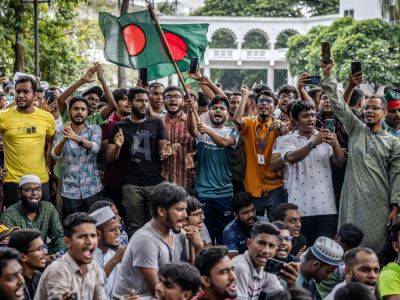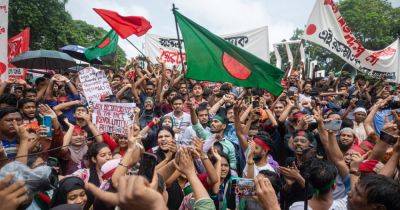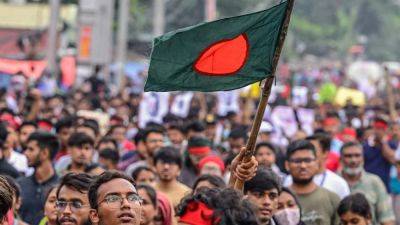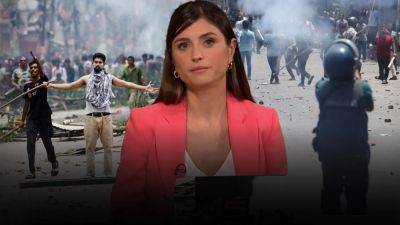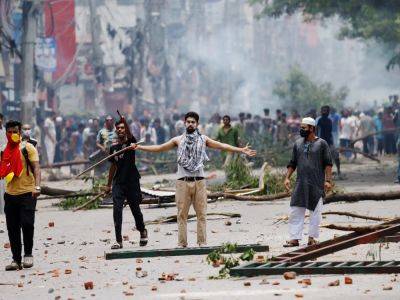Bangladesh student protests become ‘people’s uprising’ after brutal government crackdown
Bangladesh has experienced unrest for almost a month following a mass student movement demanding the abolition of the job quota system. This escalated into violent clashes that have seen police, army, paramilitary forces and pro-government groups attacking the protesters.
Protesting students are now demanding the release of all detained students, the removal of senior ministers in charge of security and law from the cabinet, and the prosecution of security personnel involved in the killings on murder charges. Despite this, authorities have continued their crackdown, arresting thousands of students nationwide.
University teachers, parents, popular artists, lawyers, and other citizens are joining the protest, shaping it into a people’s movement against Prime Minister Sheikh Hasina’s regime.
In office since 2009, Hasina has been accused of authoritarianism and corruption. Allegations of vote rigging have marred the last three general elections, with the opposition and international observers citing widespread irregularities. Rights groups also accuse her of misusing state machinery to maintain power, stifle dissent, and kill opposition activists extrajudicially.
Civil service jobs are considered the safest and most reliable option in Bangladesh due to high unemployment rates. Before the Supreme Court’s decision, the quota system allowed up to 30% of these jobs to be allotted to descendants of the “freedom fighters” who took part in the Bangladesh Liberation War of 1971.
Around the third week of July, during a communication blackout under which internet and cellular services were suspended, police, army, and paramilitary forces violently cracked down on students demanding an abolition to the quota system.
Following the restoration


